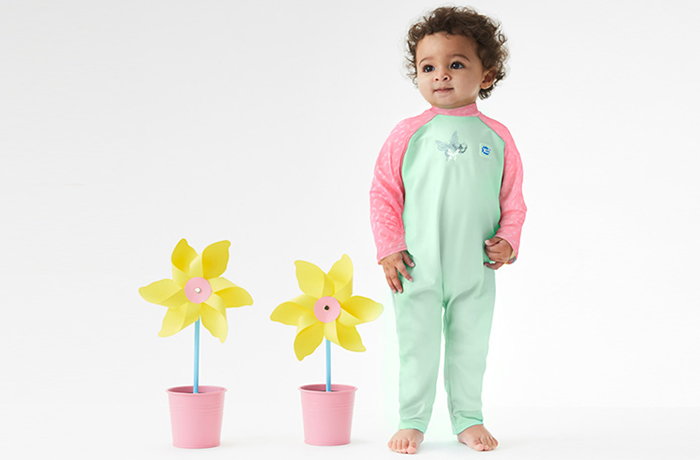Swimming with eczema: How to alleviate skin irritation

According to Allergy UK, it is estimated that around 15 million people in the UK are currently living with eczema – many of these are young children, toddlers and even babies. Eczema is a common skin condition where there is a breakdown of the skin’s natural barrier. This can lead to the exposure of allergens through the skin which may result in the area becoming sensitised and therefore developing an allergy.
People who live with eczema can have a negative experience when using a swimming pool. This is usually caused by the chlorine (a powerful disinfectant) that is added to the pool water in order to sanitise it and destroy any harmful bacteria that may be present which, if not destroyed, could result in bathers becoming ill. Chlorine, however, is also known to have a drying effect on the skin of any bather using the pool not just those who suffer with eczema.
There are alternatives to swimming in a chlorinated pool such as swimming in a salt water or fresh water pool, or even the sea. However, these solutions are not always available or practical, especially in the winter months. As the majority of pools in the UK use a chlorinated system to sanitise the water, what can be done to help swimmers not only enjoy being in the pool learning those all-important life skills but also encourage them to not worry about the effect the water may have on their skin?
Shower before and after using the pool
This is something we would recommend to all bathers not just those who suffer with eczema. Showering before getting into the pool reduces the amount of bacteria getting into the water in the first place. This can help maintain a healthy level of chlorine in the pool and avoids extra chlorine having to be added in order to counteract the bacteria present in the water and drying out the skin even further. Showering after using the pool is extremely important for all bathers, as this will help to remove any residual chlorine from the skin and hair.
Use a barrier cream
Emollient creams or ointments can be applied before entering the pool. These maybe prescribed by your doctor or recommended by a pharmacist, who may even suggest putting on a little more than normal to provide a good level of protection to the skin. These may need to be reapplied once you have finished swimming and had a shower.
Invest in a specialised swimsuit
Eczema can be really itchy at times for your little one – the last thing you want is for them to become distracted by their skin condition while using the pool. Splash About has come up with an excellent solution that will ensure the only thing on your little one’s mind is having fun. The splash about baby excema suit not only helps to keep your little one warm, it also provides an extra layer of protection for the skin, as well as help retain any barrier cream that has been applied. It’s lightweight and versatile with easy on/off poppers, which means it is a lot easier to put on and take off, so say goodbye to those changing room battles and meltdowns. It’s made from a super soft material, which is also fleece-lined meaning its unique design will help to keep your little one fully protected.
Final thought…
We all know the benefits of learning to swim are huge – especially at an early age when it is important to learn to respect the water and understand how to keep safe in it. Studies have shown that swimming can help to strengthen both the heart and lungs. It can also help with teaching the swimmer to learn to control their breathing and provide a better quality of sleep. Happy swimming everyone!

